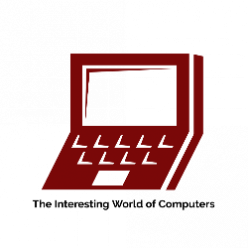Owners often are not sure of what it means to be “DPF-fitted” diesel. A DPF is an exhaust filter that is fitted to the majority of diesel cars.
It is used to remove harmful gases, including hydrocarbons from fuel and lubricants and water and sulfates that stick to soot, forming harmful particles produced from diesel exhaust fumes.
The harmful gases can develop because of a variety of contributing factors – poor or incorrect maintenance, low-quality fuel, and driving habits resulting in poor combustion. The particles are absorbed by the DPF filter and can then be cleaned or regenerated through high-temperature combustion.
It’s the moment that this regeneration process does not occur, and the filter becomes blocked, that issues can arise. Diesel particulate filters are often presented as expensive, complex components that need to be replaced. This isn’t true.
If you are properly maintained and monitored, a replacement can be avoided. DPF faults are not always a sign that the DPF is blocked.
What are the signs of a blocked DPF
There are a variety of signs that could occur when your DPF becomes clogged and/or needs to be serviced (not necessarily ready to be put on the scrap heap).
- Surging/poor performance.
- Excessive fuel consumption.
- Excessive smoking blue, black, or white.
- Displayed Engine and/or DPF Emissions lights.
- It is difficult to start the engine.
- Engine runs rough.
- Unsuccessful attempts to regeneration.
What are regenerations?
The computer-integrated algorithms of the vehicle carry out periodic renewals (burns) which is a procedure whereby the system increases the temperature in the exhaust and ‘burns away’ the particles and soot collected in the filter. When another component is failing to operate correctly, it can either increase the number of regenerations or even stop them completely until the fault is rectified. Regenerations result in blowing large quantities of black smoke from the exhaust. This isn’t harmful. Smoke that is constantly blowing could indicate a problem.
How can you reduce the chance of DPF blockage or failure?
- Make sure that the mechanic you hire has experience working with diesel engines.
- Avoid missing or incorrect oils. Beware of driving while you have an issue in your vehicle (dash warning lights).
- Avoid poor-quality diesel fuel.
- Modify your vehicle with the care I deal DPF driving habits – reduce idling, increase rpm under load (dropping down a gear), especially in crawling traffic.
- The mechanic you hire should be able to identify any changes in your vehicle, such as more raucous whistles or hissing sounds when driving. These changes can cause your DPF to stop generating.
You should avoid making use of “on car intake and induction cleaners” even if your mechanic has recommended them. They could cause serious damage to DPF’s as well as other components. Maintained DPFs can cover more than 200,000 miles before they are taken away for replacement or cleaning.
What is the cost of cleaning or replacing a DPF?
First, a warning: DPF work MUST be carried out by an experienced certified mechanic who has the correct equipment to refit and reset the DPF. Once the original fault has been found once fault has been identified, the DPF must be removed.

An excellent DPF cleaning service should have at most five years of experience in cleaning. They can also assess if the DPF might be damaged internally. A mechanic can examine the DPF on your car to determine if it’s blocked. It is not possible to determine if the DPF is collapsed or melted internally, causing the blockage.
The average cost of cleaning a passenger car is $600.
A wide range of vehicles are able to be fitted with DPF’s. Manufacturers alter their designs often, so it can be difficult to tell which DPF is installed on a particular vehicle.
The DPF is considered to be the most strictly controlled component of motor vehicles. They do not disclose the name of the DPF manufacturer.
